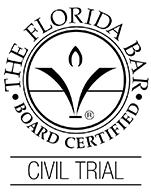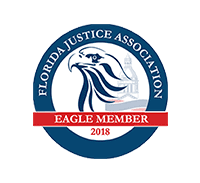Most employers must carry workers’ compensation insurance to protect workers if they face injuries while doing their job. The insurance allows employees to have their medical expenses covered and pays a portion of their wages during an extended absence from work in cases of severe injury.
Filing for workers’ compensation may seem straightforward. However, simple mistakes in the paperwork or missing crucial deadlines could harm your case or lead to a denial. If you have a more complex claim, you could wonder what next best steps to take. It can benefit you to consult a Central Florida workers’ compensation lawyer. The workers’ compensation team at Dismuke Law can help sort out the paperwork and ensure that your claim is processed correctly.
How a Central Florida Workers’ Compensation Lawyer Helps
The rules governing workers’ compensation insurance can be confusing. Especially if you have a severe workplace injury, it can be helpful to confer with a Central Florida workers’ compensation attorney to file your claim or appeal a denial. If you hire our team, our attorneys can:
- Provide advice on how to meet workers’ compensation requirements
- Ensure that all forms are completed fully and correctly
- Assist in guiding you to authorized medical care providers
- Help you in documenting your injuries and their effect on your life
- Conduct an investigation of your accident
- Interview witnesses
- Gathering and organizing evidence to support your claim
- Monitor your medical condition and work status records
- Negotiate for a fair settlement if necessary
- Represent you during compensation hearings
- File a third-party lawsuit in applicable circumstances
- Handle appeals in the case of a denial of benefits
When you work with a workers’ compensation attorney from our team in Central Florida, we can attend to the details of your case so you can concentrate on recovering from your injuries.
What Does Florida Workers’ Compensation Cover?
Each state regulates the rules for workers’ compensation. So, your claim in Florida may differ from the one you had ten years ago in another state, for instance. In Florida, the primary regulator for workers’ compensation is the Division of Workers’ Compensation within the Department of Financial Services (DFS).
General workers’ comp benefits include:
- Medical costs
- Disability compensation
- Partial recovery of lost salary and benefits
- Death benefits if a workplace accident causes a fatal injury
Specific Medical Benefits You May Receive
You will be required to submit to a medical examination by an employer-approved physician. You may also receive care from your doctor of choice, but those costs may not be covered under workers’ compensation. Per the DWC, some of the specific medical benefits you may receive include:
- Doctor appointments and treatment
- Mileage reimbursement
- Medical and diagnostic tests
- Hospitalization
- Physical therapy
- Medications
- Medical devices
- Home care, if necessary
Additional benefits under workers’ compensation can include a portion of your past wages. Other benefits depend on state laws, your injuries’ severity, and whether your disability is classified as permanent or temporary. Due to the complexity of workers’ compensation laws, it can be helpful to have a Central Florida workers’ compensation lawyer assisting you.
Can a Workers’ Compensation Claim Be Denied?
Yes. A workers’ compensation claim might be denied like any other insurance claim. In that case, you can typically appeal the denial. You will receive a letter of denial that outlines the reason for the denial and typically contains the necessary steps to begin the appeals process. Some reasons for denial may include the following:
- Condition of the injury doesn’t meet state guidelines
- Missed filing deadlines
- Claims that the injury did not happen at work
- Incomplete or inaccurate paperwork
You will have a limited period to file a request for an appeal of a denied claim. It can be beneficial to discuss your denial with a workers’ compensation attorney who can assist you in filing the appeal.
What Does a Disability Classification Mean?
To determine your eligibility for wage replacement, several possible classifications are used when you experience a partial or total disability in a workplace accident. There are four general classifications for disability in Florida as outlined in detail per Florida Statutes § 440.15.
- Temporary partial disability (TPD) is assigned when you can return to your job in a limited capacity but cannot earn 80 percent of your previous wages.
- Temporary total disability (TTD) is applied when you cannot return to work for a period exceeding seven days but less than six months. It will provide 66 ⅔ percent of your regular wage after the seventh day. The seven-day waiting period may be waived if an authorized doctor determines that you cannot work for more than 21 days. You might be eligible for up to 80 percent of your wages for up to six months for severe injuries.
- Impairment income benefits (IIB) allow for partial disability payments when a doctor determines you are at Maximum Medical Improvement (MMI). You cannot do your previous labor without restrictions; no improvement is expected.
- Permanent total disability (PTD) may be assigned after you meet MMI and remain permanently unable to work. Sometimes, you may qualify for a lump sum payment or lifetime payments.
Do All Employers Have Workers’ Compensation Insurance?
Every state has different rules governing workers’ compensation. In Florida, employers conducting work within the state must provide workers’ compensation insurance based on the type of industry and the number of employees they have. Any business employing more than four people in Florida must carry workers’ compensation insurance, with some exceptions.
Workers’ Comp Rules By Industry
In the construction industry, employers must have insurance if they have one or more employees. In non-construction industries, companies with four or more employees must have coverage.
In the agricultural industry, a company must employ six regular employees and/or twelve seasonal workers. To fall under the mandatory requirements, seasonal employees must work up to 30 days during a season but up to 45 days within a calendar year.
Contractors must vet subcontractors to ensure insurance requirements are in place before beginning work. Suppose a subcontractor does not have workers’ compensation coverage. In that case, the responsibility automatically reverts to the contractor for any illness, injury, or fatality
Finding a Workers’ Compensation Lawyer in Central Florida
When you have questions about workers’ compensation, “Ask Dave.” At Dismuke Law, our workers’ compensation lawyers in Central Florida are ready to fight for you. Our team is knowledgeable about workers’ compensation in the state and can advise you on your next steps. Contact Dismuke Law for a free case evaluation today.


![cftla-member[2]](https://www.1800askdave.com/wp-content/uploads/2022/03/cftla-member2.png)
![cftla-member[3]](https://www.1800askdave.com/wp-content/uploads/2022/03/cftla-member3.png)










